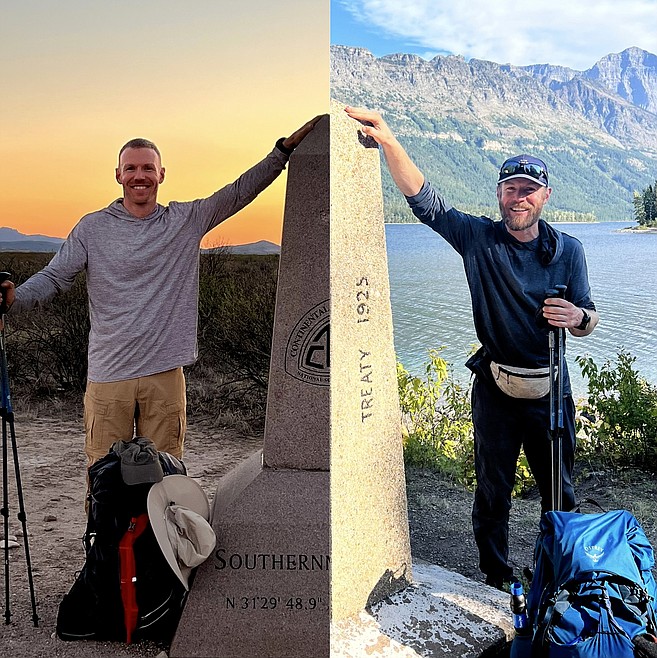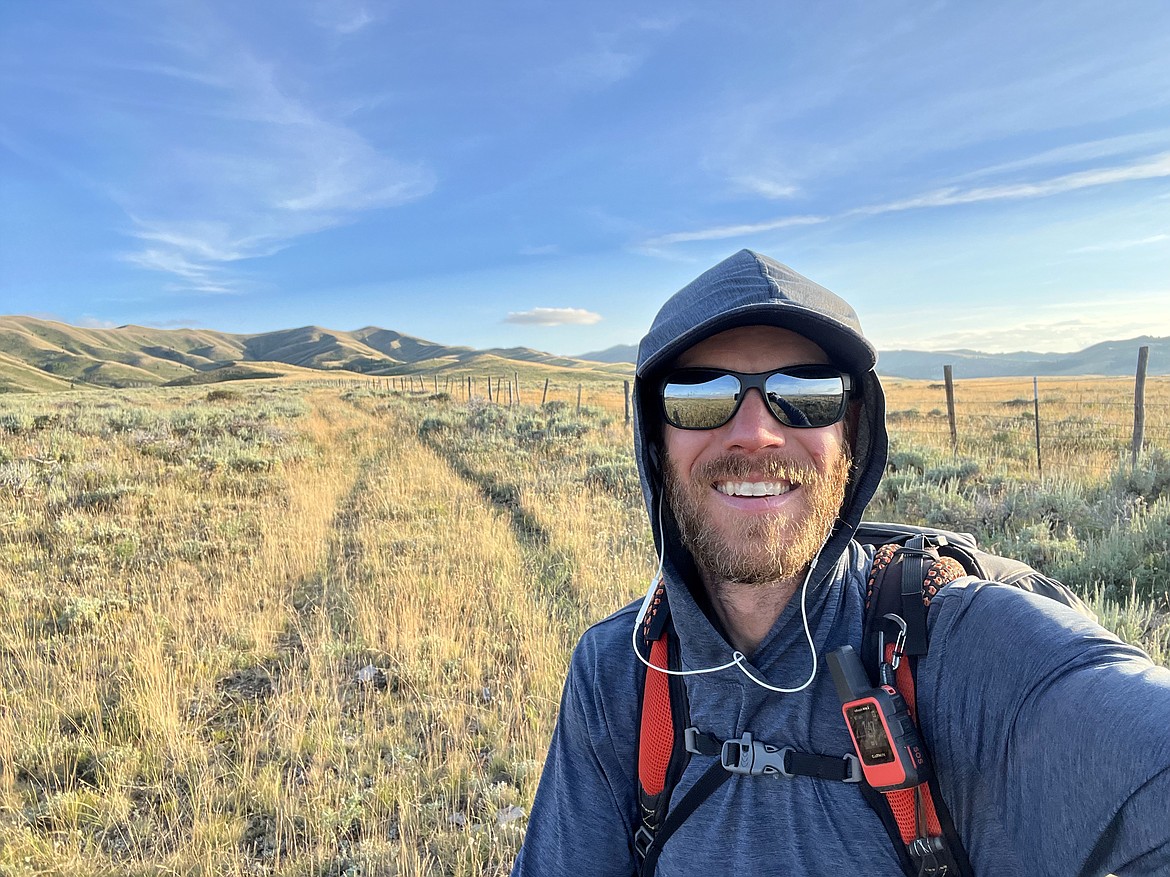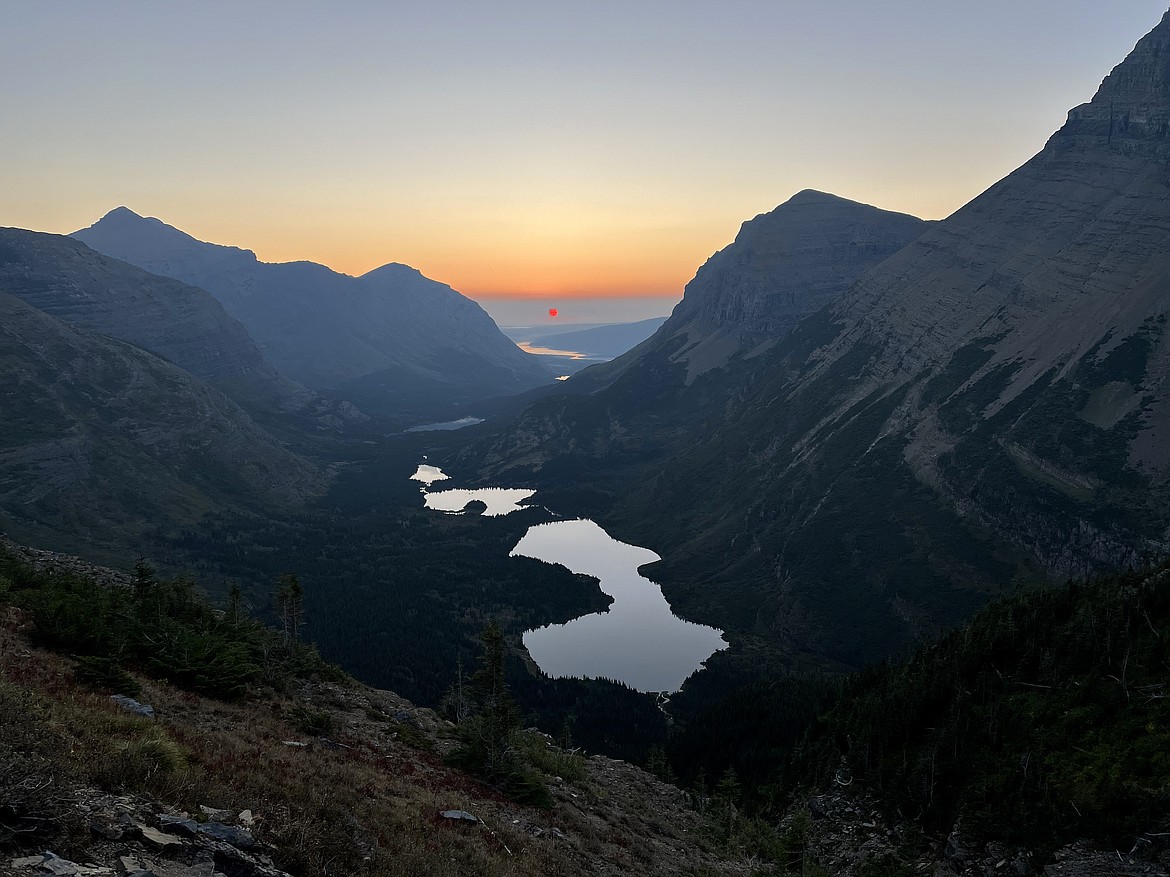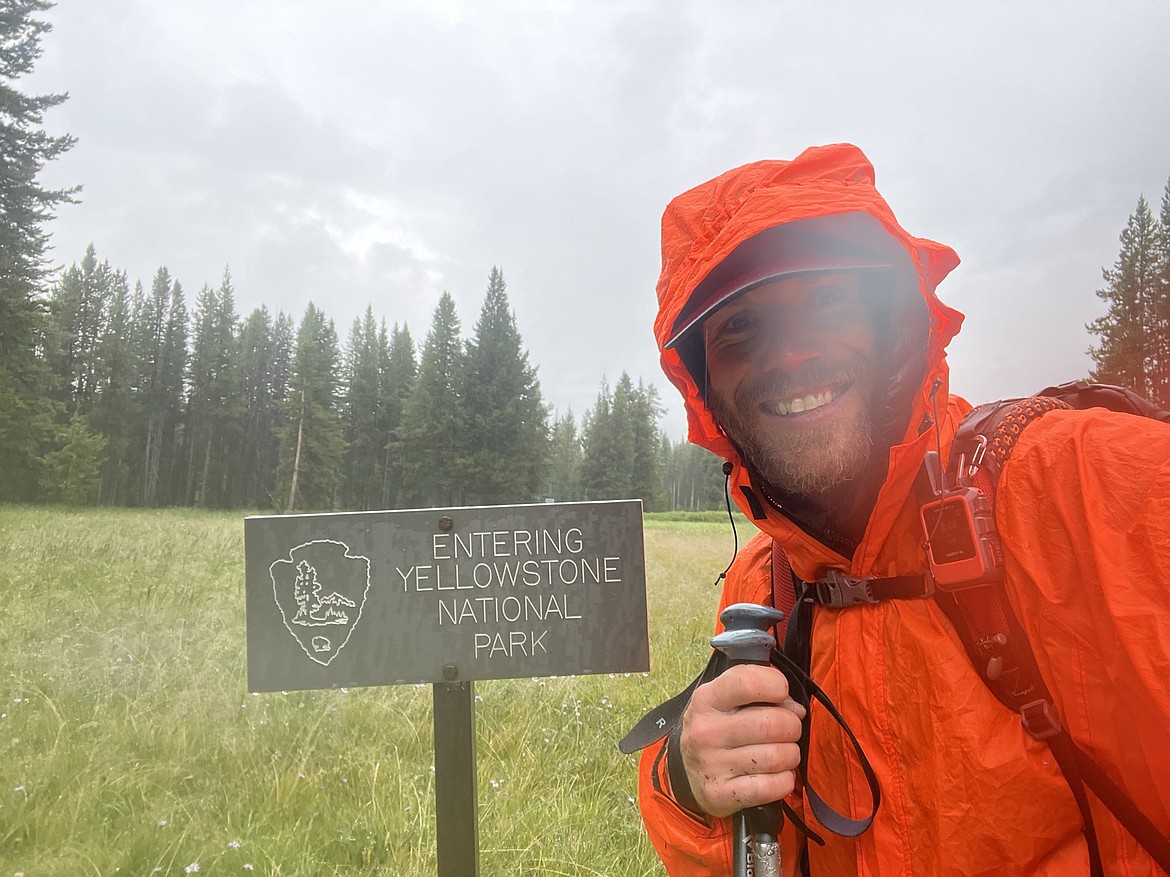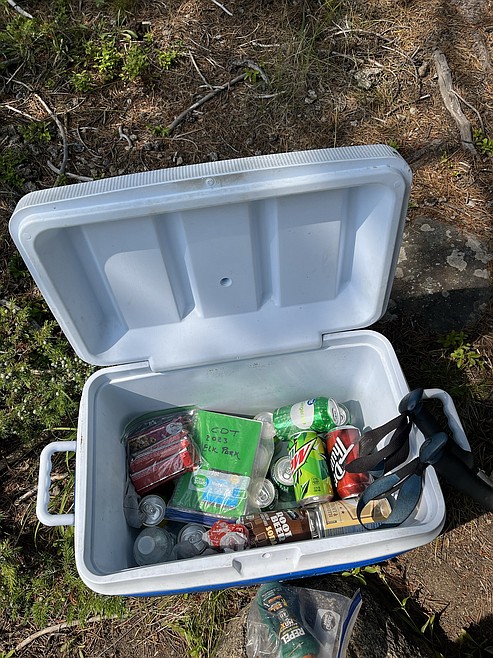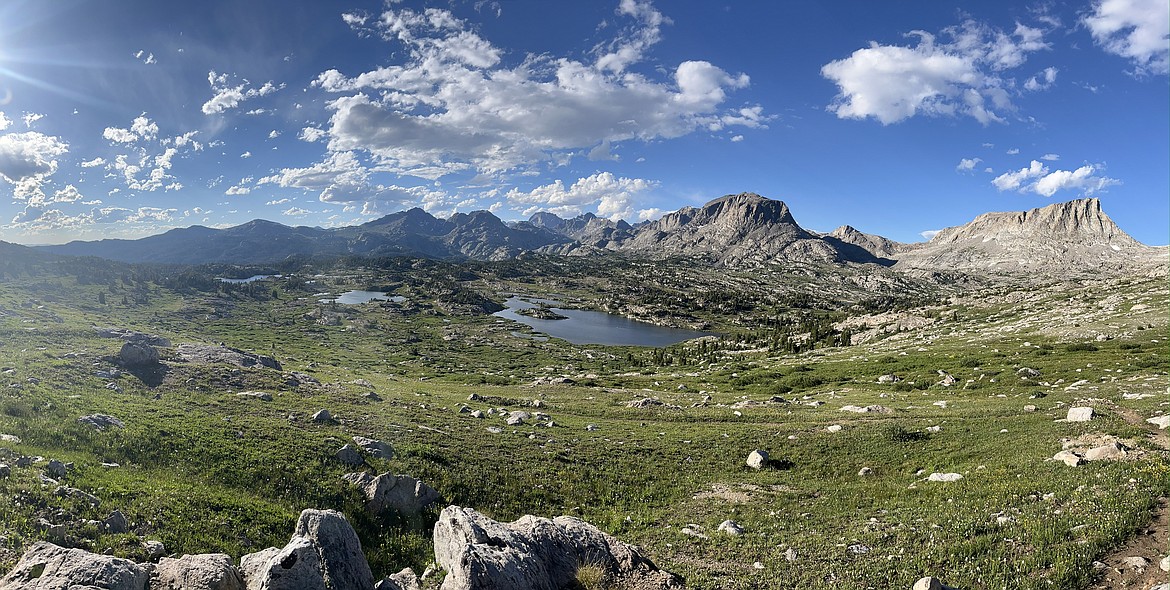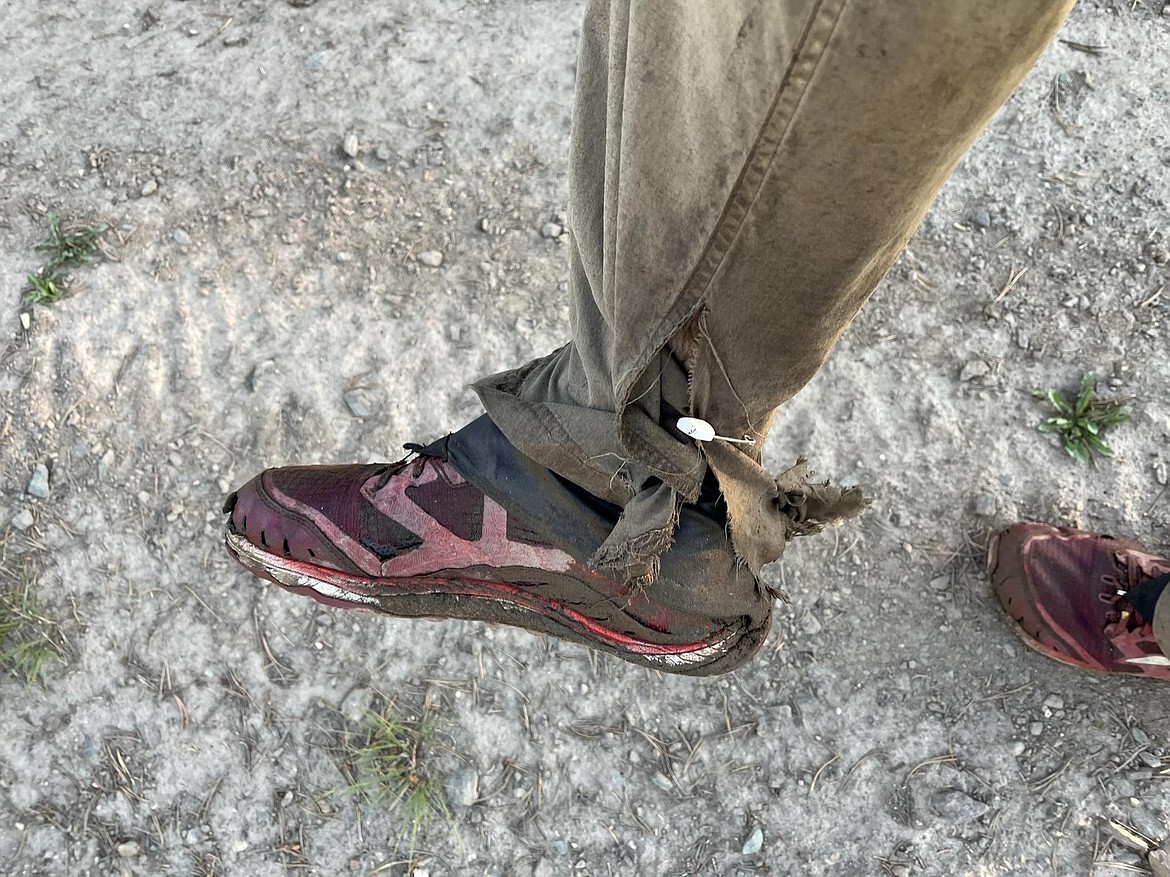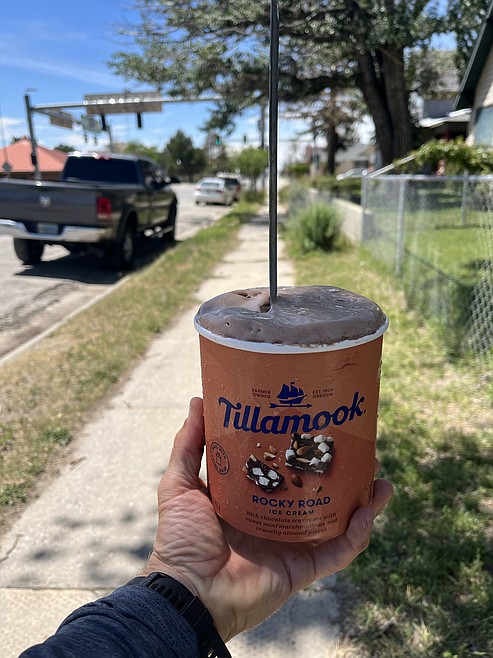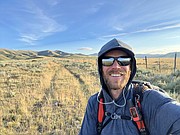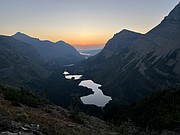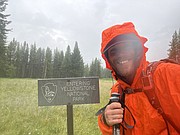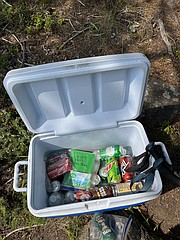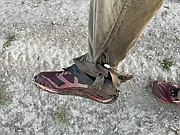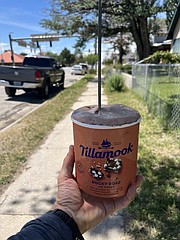Hiker sets new fastest known time record for Continental Divide Trail
Brendan Hickman was nearing Yellowstone National Park in Wyoming when he realized he was a little off on his Continental Divide Trail mileage.
The 41-year-old was accounting for hiking 3,050 miles when he only needed to account for 2,882 miles. After taking his only rest day of the entire trip to recover from a cold, his worries about not being able to make up for lost time faded away. He was well within his means to set a new fastest-known time for the famous thru-hike.
“It was a real instant change, an instant swing of the pendulum. So basically, right near the Wyoming and Montana border, I became very confident that I was going to be able to hit the target,” Hickman said.
Hickman ended up beating the 2016 record set by Jeff Garmire. Garmire completed the trail in just under 80 days, according to the Fastest Known Time website, which keeps track of records set by hikers across the globe.
The site recently posted Hickman’s new record for the CDT, which he completed in 76 days, 10 hours and 52 minutes. He began the hike on June 14 and finished on Aug. 29.
The Continental Divide Trail runs from the Mexico border to the Canada border, part of which goes through Glacier National Park and closely follows the Continental Divide. It’s not as traversed as the Appalachian Trail and the Pacific Crest Trail but it is the third largest thru-hike in the United States that completes the Triple Crown — which Hickman got when he finished.
The challenges of the Continental Divide Trail excited Hickman, who lives in Oregon and has been a social worker for 15 years. In his spare time, he enjoys hiking, camping and playing outdoors — every now and again he sets off for an adventure, like a thru-hike.
THE IDEA of spending an entire summer immersed in nature and creating lifelong memories struck a chord with him when he decided he wanted to hike the Appalachian in 2017. He set off on that journey with his dog Sydney and soon learned about the 100 Day Challenge.
“This appealed to me, I'd already kind of started up the trail strong with decent miles. So I thought that kind of it was a good benchmark to look for and that sort of helped push me. I’m naturally pretty competitive, but it pushed me to go a little bit harder. And my dog was a champ and tolerated the miles very well, she's very athletic,” Hickman said.
He got very close to completing the 100 Day Challenge for the Appalachian and the experience fueled him to tackle other thru-hikes. He completed the Pacific Crest and then set his sights on the Continental Divide. To train, Hickman started doing lots of hiking, walking with a weighted pack, hitting a stair climbing machine and adding a heavy dose of yoga.
He ramped up to walking 20 to 30 miles during the weekdays.
“And then on the weekends, I would do 30- to 35-mile hikes in the beautiful wilderness of Oregon. So, I think all these things kind of combined set me up really well for this challenge,” Hickman said.
It was important to not over train, he said. The Continental Divide is rugged and hikers spend most of their time at high elevations, but there are also not as many people as the other Triple Crown hikes and towns are farther apart. So, getting injured in the backcountry becomes more of an issue. Throw in the fact that time is of the essence and it’s easy to see how Hickman would be cautious of mistakes, particularly when he was closing in on the finish line.
“You can really visualize it, and then you're like, I don't wanna do anything to jeopardize this. But, it is a very rugged trail and there's not that many people out there. It's a very unique experience,” Hickman said, remembering how careful he was when hiking.
He would wake up around 5 a.m. and be on the trail by 5:30 a.m.. There would be three breaks a day, about 15 to 30 minutes long, Hickman said, and he would end his day at 10 or 11 p.m.
“I would minimize time off of my feet and I think that's 100% the key,” Hickman said. “And then the other area (where he cut time) is stopping and towns along the way … I never stayed in a town, I would essentially go in, get resupply, then get right back out on the trail and hike.”
THERE WERE many things outside of his control on the journey. Namely, the fact that the trail is oftentimes hard to traverse because of poor signage. He said in New Mexico it was easy to take a path made by free range cattle instead of the trail. After several minutes, he said he spotted a sign 50 feet to the right of him and realized he was just off the trail.
He also lucked out with weather until he hit rain in Wyoming that gave him a rude awakening and soaked his gear.
“A bunch of the water gathered in my tarp, and when I moved at like 4 a.m. it poured onto my sleeping pad. So I woke up to being very wet and was just like ‘oh my gosh’ so, I just packed up and started for the day,” Hickman said.
That might have been one of the most challenging moments of his hike, with his most insulating layers wet, he was hiking into Yellowstone National Park and needed to get to a road so he could get into town and dry his gear. He had 36 miles to go with 10 to 15 river crossings, and needed to get to a road at a decent time so he had a good chance of hitching a ride.
Entering Yellowstone he took a photo of himself.
“I'm like, smiling and you can't see anything through the photo because it's all wet. And I was like, ‘I need to put that on the wall to remind myself of this experience and that I was not actually really smiling for most of that day,’” Hickman said.
But there were many other times where he had a real reason to smile. He had to stop to buy new shoes. Walking about a mile to a sporting goods store in Silver City, New Mexico, he found the store had been closed early so the owners could attend a memorial service. He continued on to get his resupply of food and other necessities and was thumbing a ride back to the trail when the person who picked him up said they might be able to help.
“The people who owned the store were family friends of hers. So she started making calls,” Hickman said.
The owners of Morning Star Sports came and opened the store for him after hours. He tried on shoes and made his purchase.
“This is amazing, just such kindness and resourcefulness. And not only was she willing to reach out to her family friends — the person was willing to come open the store for me and take time out of their day after they'd been in a memorial service. So, I think those things are really valuable,” Hickman said.
The moments shared with other people on and off the trail are their own kind of highlight, Hickman said, taking in the sights and views during the hike are another.
“As I got further in the trail and got more secure in accomplishing the goal, I stopped doing things like drinking cold coffee in the morning and actually would make warm coffee. I would stop at sunrise and make coffee and drink it while watching the sunrise — and that's just such a neat experience to be out there doing that,” Hickman said.
DURING THE trip, he mailed himself 13 resupply packages and ate about two-thirds of his meals from that. He ate a variety of foods, like pasta with freeze-dried vegetables, freeze-dried beans and more. In a list of trail statistics that Hickman compiled, he notes that he once ate 48 ounces of ice cream in one sitting.
He went through eight pairs of shoes, two backpacks and three pairs of trekking poles. His longest day hiking was 22 and a half hours long, his shortest night of sleep was 30 minutes and had a total of six showers.
Through the entire hike he only slept in a tent for two nights. At the end of the trip, he had hiked 2,882 miles, averaging about 37.6 miles per day and ate 12 burgers, which he notes was a disappointingly low number of burgers.
Through all the blisters and uncertainty, Hickman said the experience has provided a lot of really amazing memories that he can look back on.
“And then the sense of accomplishment, and I think the accomplishment hasn't quite settled in yet. I’m kind of adjusting back to civilization. I'm distracted by everything else and I keep forgetting that number one, I've completed the Triple Crown, and then number two, that I beat the record, the fastest known time,” Hickman said.
Now it’s time for rest. But after his recovery period ends, Hickman said he would like to continue doing challenges like thru-hikes. Though he might not get as competitive as he did while trying to beat the fastest known time record, he said he’s interested in biking across the United States or canoeing rivers from source to end.
“There’s so much beautiful nature and there's so many amazing things that are out there, you know, I definitely will continue to hike a lot. And I'm also looking at the possibility of doing adventures that are not hiking and kind of shifting around and seeing what else is out there and have different experiences, but I will certainly be spending a lot of time on trails,” Hickman said.
Reporter Taylor Inman can be reached at 406-758-4433 or by emailing tinman@dailyinterlake.com.

